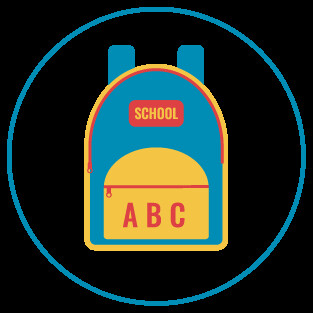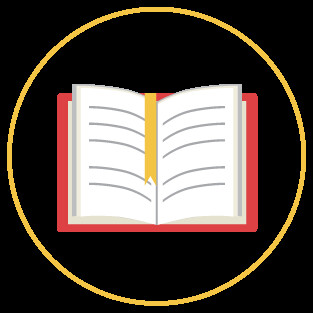The days of your high school guidance counselor handing you a college application and sending you on your way are long gone. These days, school counselors are viewed as indispensable members of a school staff, with 93% of school counselors holding a master's degree.1 As counselors and educators, school counselors help a student population to process what's going on in school and at home, and to develop academic strategies to help them be successful now and in the future.
The Impact of School Counselors
Study after study indicates that a school counselor is one of the best investments a school can make. High school students who get in touch with their guidance counselor are significantly more likely to apply to college and subsequently get a degree.2 In high-poverty areas, decreasing the student-to-counselor ratio had measurable academic and behavioral outcomes.2 School counselors have been shown to increase the percentage of minority students who qualify for Advanced Placement classes, and even at the elementary school level, school counselors implementing robust, data-driven counseling programs have demonstrated significant academic improvement over similar schools with no such programming.2 Most importantly, there is a direct link between school counselors and college readiness.2
A School Counselor's Typical Day
As with most counselors, a school counselor's day varies with the needs of their students. One-on-one meetings with students will certainly take up a large part of their day, as they work with students to develop learning goals, apply for colleges or scholarships, or figure out the root causes of disruptive behavior. Whether they're working on academic or behavioral goals, counselors spend much of their day creating and nurturing clear channels of communication among students, parents and faculty and staff at the school.
Many counselors also work with the school administration to develop school-wide initiatives to improve academic performance. They may be consulted in the construction of the school's master schedule, or be asked to help develop school-wide initiatives to increase academic performance or decrease behavioral issues. Depending on the population they work with, school counselors may find any number of specific daily tasks unique to different stages of a young person's development.



A Clear Head in a Crisis
With their background in mental health, school counselors act as point persons in times of crisis. School presents many challenges to students, and when they respond in ways that impact other students negatively, it's the school counselor who will help to open conversations and guide students toward mutual understanding and trust. In the event of a crisis, school counselors can work with students on processing their emotions and pursuing peace.
Training to Be a School Counselor
If you want to focus on school counseling, it's important to have a firm grasp of both child development and human development throughout the lifespan. Prevention and intervention skills will also be important, as a big part of the school counselor's job is to identify disruptive behavior in students and help them to prevent such behavior in the future. As demographics change, school counselors also must be well-versed in theories of multicultural counseling, specifically among school-aged children.
With coursework in these areas and more, the William & Mary Online Master of Education (M.Ed.) in School Counseling program will help equip you for success and effectiveness as a school counselor, guiding future Americans toward lives of happiness and stability.
- Retrieved on March 16, 2018, from onetonline.org/link/summary/21-1012.00
- Retrieved on March 21, 2018, schoolcounselor.org/asca/media/asca/Careers-Roles/Effectiveness.pdf


